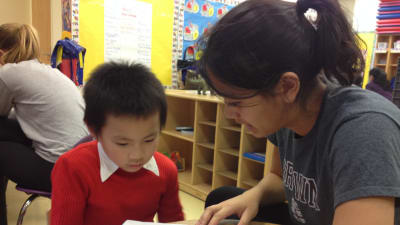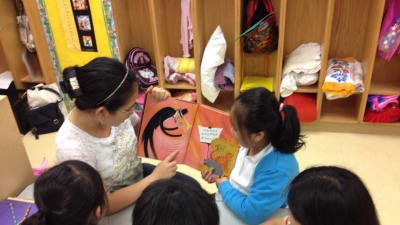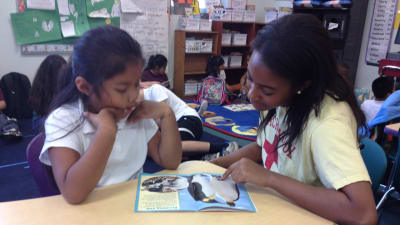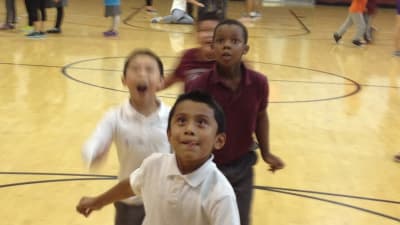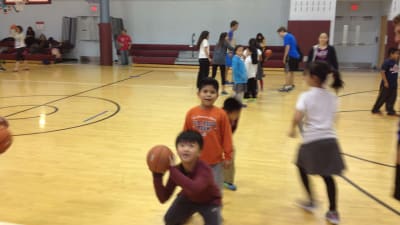Books and Basketball: SEGL, Stories, and Service
“Stories and Service.” 2012 Golden Mug Award winner Carl Wilkens says they are our most effective tools. Together, he says, they build interpersonal bridges, they conquer differences, they teach empathy, they sway the unconvinced.
SEGL has always been good at introducing stories to students. Whether it is Carl’s riveting account of those who stood up to the Rwandan genocide, or Bud Krogh’s story about the secret meeting between Elvis and Nixon, or Josh Bolten’s haunting 9/11 tale, we believe first-hand stories help students learn from the challenging choices our guest experts have made. We believe this will make them better deciders when they face similar choices as leaders.
Until the spring of 2012, we were less strong at providing opportunities for service. It is hard to find meaningful service for 24 high school students to do simultaneously, especially alongside so many competing priorities. Considerations like safety, transportation, and timing added to the difficulty. And our Director Noah Bopp insisted that any service be regular: serving at a soup kitchen on Thanksgiving is satisfying, but it does not teach nearly as much as serving every week.
Our service story began with our students clamoring for service opportunities. And so we worked to create something unique and compelling. What resulted is our Books and Basketball program, which is fast becoming an SEGL trademark experience.
Books and Basketball happens on Wednesday afternoons, after our Ethics and Leadership day, at Thomson Elementary, a Title I elementary school just north of Metro Center. Our students trek 20 minutes down Massachusetts Avenue and sign in at the front door of an old DC schoolhouse (so old that the entrances on each side of the building are still marked separately for “Boys” and “Girls”).
For the first 30 minutes, each student pairs with one first or second-grader to work on reading skills. Most of the students are ELL (English Language Learners); about 60 percent are Latino, 30 percent Chinese, and 10 percent African American. All receive free or reduced-price meals at the school. The reading session allows the students to do something they rarely do at home: work on English reading skills.
Then we move to the gym for basketball! These sessions are often the only organized sports activities the children ever receive. They also learn discipline (“toes on the line!”), teamwork (“support your teammates even if they miss!”), fine motor skills (“elbow over knee under ball!”), and other lessons. (Special thanks to Modell’s Sporting Goods for supplying the 12 tiny hands-sized basketballs that we use.) So far this semester we have worked on shooting, dribbling, passing, and defense.
The results of these opportunities are huge for the Thomson students, who improve their reading considerably over the 15 weeks of the semester, but they also help our students gain a first-hand understanding of the public school system, poverty and its associated challenges, managing the sturm und drang of tiny emotions, and pushing aside a day’s woes to prioritize the needs of the less fortunate.
Below you can find pictures from some of our sessions, as well as two videos of our students reading with the Thomson kids.
